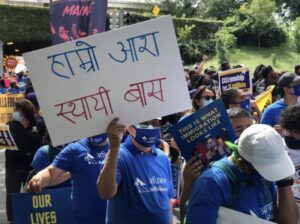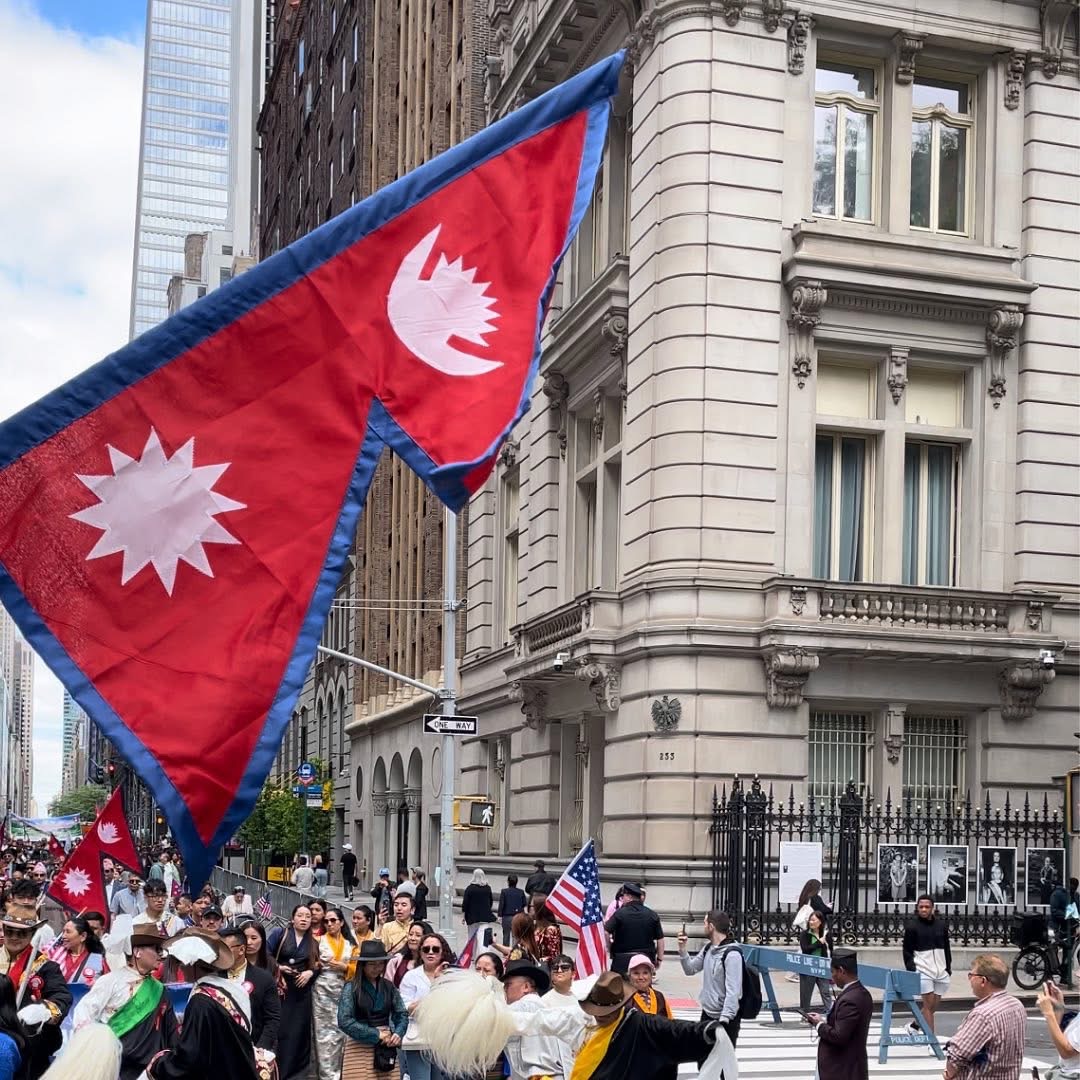Federal judge blocks TPS cancellation; hope is restored for Nepali immigrants
NEW YORK- A federal judge has blocked the Trump administration’s plan to end Temporary Protected Status for immigrants from Nepal, Honduras, and Nicaragua, allowing thousands—including more than 9,000 Nepalis—to continue living and working legally in the U.S.

The ruling came after advocacy groups argued the termination was rushed and racially biased. Judge Trina L. Thompson found the government’s review of country conditions to be incomplete and influenced by prejudice, deciding that the move would cause irreparable harm to families who’ve spent years building lives in America.
Many Nepalis impacted by the decision say they feel seen and supported. Community organizations are stepping in to offer legal guidance, emotional support, and reminders to stay informed as the legal case moves forward.
The judge’s decision grants temporary relief, giving TPS holders a moment of safety while the future remains uncertain. Across cities and small towns, the Nepali-American community continues to contribute with strength, dignity, and service.
What Is TPS and Why It Matters
Temporary Protected Status is a humanitarian program that allows people from certain countries affected by disasters or conflict to live and work legally in the United States. For Nepalis, TPS was granted after the 2015 earthquake that destroyed homes, livelihoods, and critical infrastructure.
Since then, TPS holders have opened businesses, worked in healthcare, food service, elder care, and education, supported both U.S. communities and families back home through remittances, paid taxes, and built strong local ties. Many have not returned to Nepal in nearly a decade. The recent threat to end this protection stirred deep anxiety across immigrant families.
What the Court Said:
The legal challenge—led by advocacy groups and TPS holders—argued that the government’s decision to end TPS was rushed, politically motivated, and racially biased. Judge Trina L. Thompson agreed. In her ruling, she found the government’s review of Nepal’s current conditions to be incomplete and one-sided. Discriminatory comments by officials were cited as evidence of unfair intent. The judge determined that ending TPS would cause serious harm to long-settled, law-abiding residents.
Her decision keeps TPS active while the legal process continues, offering at least temporary peace of mind.
Voices from the Nepali-American Community
“I was ready to leave my job, pack everything. I didn’t know what I’d do,” said Arjun Gurung, a restaurant worker in Queens.
Now we can breathe again. I can keep cooking, keep working, keep dreaming.
“We are not just immigrants. We are caretakers, helpers, neighbors,” added Sandhya Lama, a nurse assistant in Torrington.
This decision feels like someone finally listened.
Local Nepali associations are organizing legal support sessions, translation assistance, and gatherings to help community members stay updated and emotionally supported.
Looking Ahead:
Advocates are urging TPS holders to stay informed, renew documentation in a timely manner, and prepare for possible changes ahead. Community leaders continue to push for long-term solutions, such as a path to permanent residency and citizenship for TPS recipients.
Why This Matters:
This story reaches beyond immigration policy—it speaks to dignity, stability, and home. Nepalis who arrived in the U.S. after tragedy now play vital roles in cities and small towns alike. Their strength and resilience are part of America’s story. This court ruling honors that truth, and strengthens the message that immigrant contributions are deeply valued.

